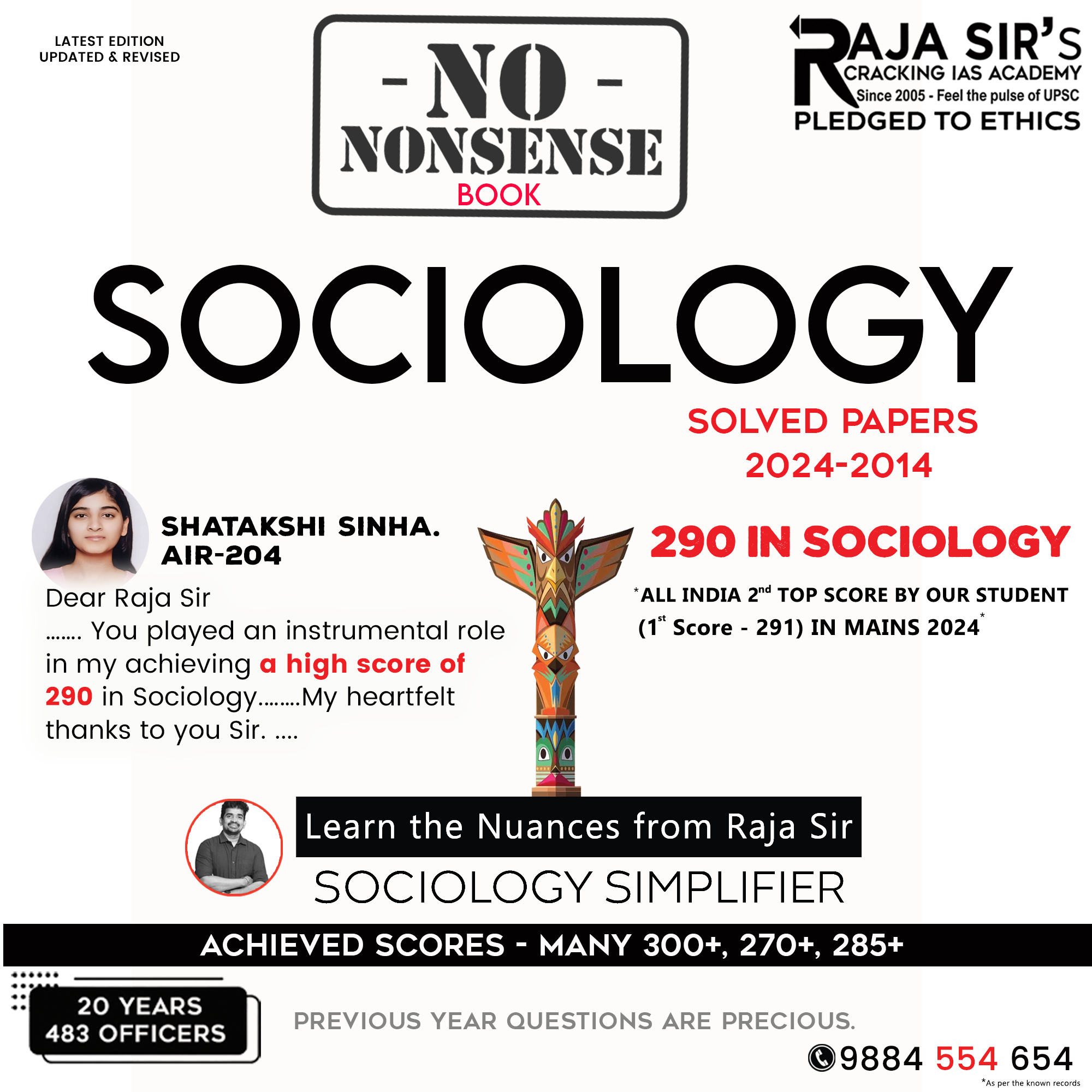- Home
- Prelims
- Mains
- Current Affairs
- Study Materials
- Test Series
 Latest News
Latest News
What is hypothesis? Critically evaluate the significance of hypothesis in social research. (10 marks) (UPSC CSE Mains 2025- Sociology, Paper 1)

A hypothesis is a logically constructed proposition that suggests a possible explanation or relationship between two or more variables. It is not a mere guess, but a statement derived from theory, prior research, or observation, intended for empirical testing.
Significance
- Guides Research Design
Hypotheses help researchers choose appropriate methods, tools, and variables. For instance, a study on caste and voting behavior may hypothesize that caste identity influences electoral choices, guiding survey design. - Focuses Inquiry
It narrows the scope of investigation, preventing aimless data collection. This is crucial in complex social settings with multiple influencing factors. - Enables Empirical Testing
Hypotheses allow researchers to test theories against real-world data, strengthening or refuting existing knowledge. - Promotes Objectivity
By stating expectations upfront, researchers reduce bias and increase transparency in analysis. - Facilitates Theory Building
Confirmed hypotheses contribute to the development of broader sociological theories, such as modernization theory or conflict theory.

Limitations
- Not Always Applicable
In qualitative research, especially ethnography or grounded theory, hypotheses may be absent or evolve during the study. - Risk of Oversimplification
Social phenomena are complex and multi-causal. A rigid hypothesis might ignore nuances like intersectionality or cultural context. - Confirmation Bias
Researchers may unconsciously seek data that supports their hypothesis, undermining objectivity. - Ethical and Cultural Constraints
Some hypotheses may be difficult to test due to ethical concerns or cultural sensitivities—e.g., studying domestic violence in conservative communities.
Example
- Study: Impact of social media on youth political awareness
- Hypothesis: “Youth who use social media daily are more politically aware than those who don’t.”
- Significance: This hypothesis helps define variables (social media usage, political awareness), guides data collection (surveys, interviews), and enables analysis (correlation, regression).
While hypotheses are indispensable in quantitative social research, their role in qualitative studies is more flexible. A well-formulated hypothesis enhances clarity, rigor, and relevance—but researchers must remain open to complexity and emergent insights.











 General Studies
General Studies